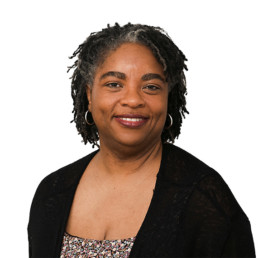
Written by Stacy Johnson MBE
Chief Scientific Officer and Founder of The Reverse Mentoring Practice. Stacy is a leading voice on the frontier of justice, inclusion and belonging work. She helps organisations to re-imagine, re-engineer and reset their culture. Her groundbreaking work on reverse mentoring and practice supervision is making waves. Stacy is #TriniToDeBone
We want to talk about reverse mentoring in situations where you’re trying to improve inclusion, as an approach to retaining staff, and who may also be dealing with barriers to inclusion, who may find themselves in tricky situations and circumstances related to their protected characteristic. We do not want to have superficial conversations.
We want to celebrate the lived experiences of people through the magic of reverse mentoring, whether it is informal or formal, whether it’s programmatic in your organisation, or ad hoc.
We want to help you listen differently, to spark change in your organisations by empowering you and your senior leaders to move forward with cultural humility to ignite equitable action.
We sat down with Stacy Johnson MBE, our Chief Scientific Officer & Founder at Reverse Mentoring Practice who shared her insight and research on reverse mentoring. In the online seminar Stacy also held a question-and-answer session where one member asked:
Q: How can we get the people that would benefit from a mentoring relationship interested?
Stacy: Whether you are a very senior person or a junior person, you should periodically pause and assess.
Ask yourself: Am I being mentored? Am I mentoring anybody else? And if one of those things is not true, you need to make that right. You should always, at any point whether it’s formally or informally, be mentoring or being mentored.
It’s about reminding people on both sides of the equation that there is benefit from being a mentor and being mentored.
As far as those who are already converted, we should be more open about what mentoring is.
For example, the way I got a reverse mentor was because an amazing young man said to me, “will you mentor me?” And I actually felt a bit of horror. In fact, I remember saying to him, “I’m a terrible mentor! Let’s just meet and have some coffees!”
And then eventually, after several of those meetings, I said, “actually, will you reverse mentor me?”
I guess that’s because I had never been formally trained as a mentor. Some people have the impression that you have to be really knowledgeable, and you have to have all the answers. The idea of being formally asked to be a mentor is probably quite intimidating to even the most amazing leaders.
For me, I just want to have interesting conversations with this amazing young man and share ideas about things that had worked for me, things that I’d seen had worked for other people who were similar to him, or different to him. As soon as he labelled that mentoring, I panicked. So, it might be the same the other way around.
Maybe for the people who are not yet converted, it’s about offering it up as an informal relationship and connecting with somebody who is more junior to you, or more senior to you. Maybe that pulls them in, they begin to see the benefits and then they can happily then label it mentoring. They will be extolling the virtues of mentoring, and you won’t have to convince them.
If you want to know more, join us at the Diverse Educators webinar where we will explore how we unlock the potential of reverse mentoring and cultural humility in driving personal growth and organisational success. The recording will also be available to playback afterwards.

